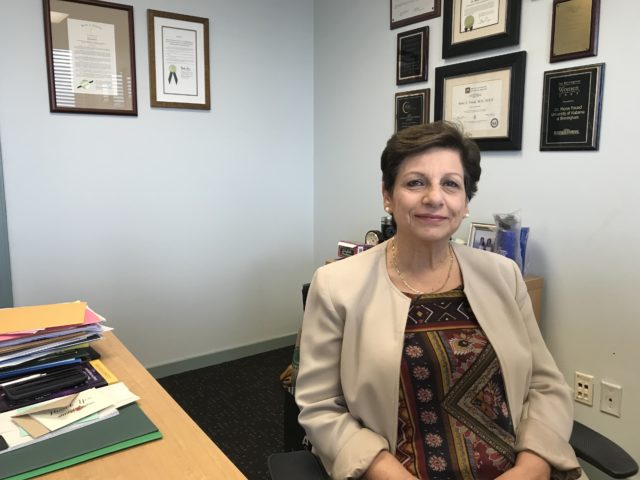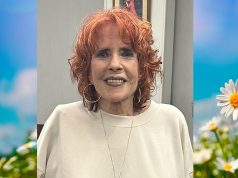By Erica Wright
The Birmingham Times
The goal of the All of Us Research Program is to help researchers understand more about why people get sick or stay healthy. People who join will give information about their health, habits, and what it’s like where they live. By looking for patterns, researchers may learn more about what affects people’s health.
Mona Fouad, M.D., is professor and director of University of Alabama at Birmingham’s Minority Health & Health Disparities Research Center. Here, Fouad discusses the program.
What is your role with All of Us: “I am one of the investigators on the investigative team for All of Us. I’m responsible for enrolling the participants as well as recruitment of the participants for All of Us.”
Talk about the project from a behavioral and social sciences perspective: “Actually this project is about precision medicine more than behavioral science, and the idea of it is to direct us how to deliver the best care for people and patients and how we can be more precise and personalized to do that. If we’re successful with this project, it’s going to really change how care is delivered; so instead of you knowing how to deliver care to a lot of people with this, you can tailor the treatment or the care to the person in front of you.”
Why is it important to have representation from all people and all communities by age, gender, ethnicity, race, location? Because this is more personalized; and for us to be able to develop the best care or treatment for people, you really have to have this diversity to understand how you can deliver care to everybody no matter what their background is . . . like if they’re older, if they’re younger, if they’re women, if they’re African Americans or Hispanic, if they come from rural areas where they may be exposed to different environmental problems . . . that’s why it is very important to have diversity in participation in this study.”
How would you describe the need of molding medicine to each individual because of their differences: “For example, it’s not just their differences but also how the disease is different. Like, if you’re treating breast cancer, the incidence of breast cancer is higher in white women over the age of 50 but the incidence of it is higher for African American women at a younger age and the kind of cancer and how it behaves at a younger age is different than when it comes to women at an older age. Usually, when it’s in a younger age, it’s more aggressive, it’s faster . . . that’s an example of if we want to treat the more aggressive cancer or breast cancer in younger women we can do the same treatment like we do for older women . . . since African American women get it more at a younger age, we need to understand what is the nature of that disease more, so we can treat it more effectively.”
What are some other examples? “Prostate cancer starts at a younger age in African American men than in white men and also the disease is more progressive and sometimes you don’t even detect it until a person dies from something else at an older age . . . but when it comes at a younger age it is an aggressive disease so we need to understand that. Another example, there are certain cases of lung cancer where some of them respond to certain treatments and there is another kind of lung cancer that responds to different treatment, so you don’t want to use the same treatment for everybody because the disease itself comes in a different way . . . this is why we have to make sure we have good representation.
How is this helpful to reducing health disparities: “If African Americans are part of it we can really know how to treat me, how to treat you, and how to treat every person . . . it’s like if you can go to a doctor and say, ‘Oh, I’ve done this procedure before or I have this treatment for heart condition’ and then you’re going to ask ‘how do you know this procedure works’ and they say ‘oh, we had a study’ then you have to ask, ‘did it work for somebody like me?’ and they can say ‘yes’ or they can say we did the study and everybody that participated in it were all white men, but say I’m an African American woman, ‘did you test this in people like me?’ So if the answer is ‘yes,’ then you know this treatment would work for you, but if not, they’re just guessing, ‘if it worked for all these men then it should work for all these women,’ but they don’t know.”
How do you bring minorities into the program: “We’re trying to talk with some of the community leaders, church leaders, women’s groups, men’s groups, like the 100 Black Men of America organization, and we’re trying to reach out to publications like [The Birmingham Times] whose readers are a large group of the African American community, and so we’re trying to send out these messages, but we’re also trying to do a lot of community engagement like town hall meetings, bringing in representatives of the community and telling them about the study and listening to their questions so we can understand . . . to tell them more about the study and if they have any concerns, we can address these concerns.
There hasn’t been anything like this before. How transformative can this be: “This is really a huge undertaking and it started with an initiative by President Obama, about having one million people participating in this study. This is the first ever that we have a million participants so it’s done all over the country and a lot of people are going to participate in it from every place in the United States, from children to older people, very diverse, and again as I mentioned, they are looking at more minorities to develop more precise treatment or specific treatment for every person. They’re going to look at the most prevalent diseases, or even rare diseases, and again they’re going to look at genetics as well as behavioral aspects of people, like lifestyle, exposure to environment, they’re also going to look at how to use technology to reach people and do assessments for our physical exams, and so the results of it are going to really benefit many people and address many diseases.”
MORE ABOUT ALL OF US
The All of Us Research Program is a large research program. The goal is to help researchers understand more about why people get sick or stay healthy. People who join will give information about their health, habits, and what it’s like where they live. By looking for patterns, researchers may learn more about what affects people’s health.
The mission of All of Us is to speed up health research. One million people are being asked to share their unique health data. This information will be added to a database. Researchers can then access this data to conduct thousands of studies on health and disease.
The goal for the entire Southern Network of All of Us is 20,000 participants per year for five years, total of 100,000. The Southern Network is Alabama, Mississippi and Louisiana.
For more information call (855) 282-2863, email allofus@uabmc.edu, or visit JoinAllofUs.org.




